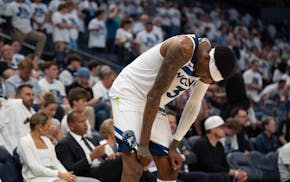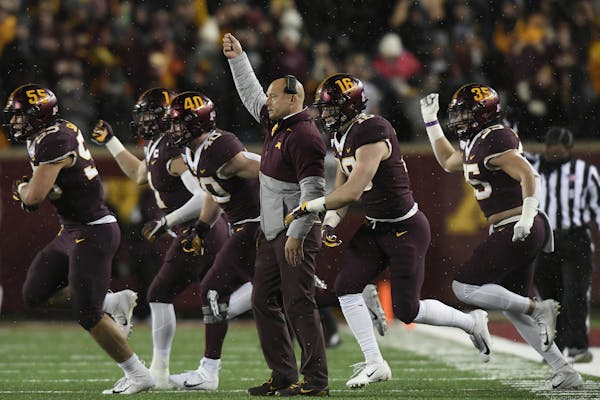Big Ten football players pleaded, protested and even sued to persuade their conference to reverse its decision and reinstate a fall season. Their voices were heard.
Now that they got their wish, this will take unprecedented dedication and discipline on their part to make this experiment work.
Translation: No house parties.
Sorry.
In normal times, football players are BMOC — Big Men On Campus. Now they must be IMOC — Invisible Men On Campus.
Their daily routine must follow strict guidelines. Home, class (if in-person), practice, home. Rinse and repeat.
Unfortunately, that is the only hope of this truncated season reaching the finish line in mid-December while also giving teams the best chance of success on the field.
Wednesday was a banner day for the conference after a turbulent period of infighting. Big Ten leaders made the correct decision after a series of missteps. Now the onus is on those involved to honor that decision by demonstrating personal accountability. A little luck in avoiding the coronavirus will be welcomed, too.
Among myriad medical and testing protocols announced by the league was one sentence that should be plastered in every Gophers meeting room: "The earliest a student-athlete can return to game competition is 21 days following a COVID-19 positive diagnosis."
Twenty-one days. Three games, at a minimum — one-third of the season lost if a player tests positive.
Some will argue that 21 days is overly rigid, but these are the guidelines that persuaded Big Ten leaders to give the green light. It's this, or nothing.
"We have to do our part," Gophers coach P.J. Fleck said on the Big Ten Network. "The responsibility falls on us."
In other words, they must live inside their own quasi-bubble, which goes against the nature of young people and the best part of college life, the freedom to socialize.
Ever been on a college campus on a Saturday after a big win by the football team? Streets, bars and fraternity row overflow with noisy revelers. That's part of what makes the college football experience so unique. Or just pick a random Thursday night on campus. Going out is part of the deal.
We've seen photos since students returned of gatherings where social distancing and masks are being ignored. We can wag our fingers at them, but it would be hypocritical for me to suggest that I would chain myself to a dorm room if this pandemic had happened when I was a student.
Just being honest.
Big Ten athletes don't have that choice, not if they want to give their teams the best chance to stay safe and play games.
Positive tests are inevitable, even if athletes avoid public areas, follow every protocol and do everything right. Reports out of Penn State on Wednesday said 50 student-athletes there tested positive for COVID-19 in early September.
A report from Madison said over 40 Wisconsin football players and staff had tested positive (no time frame given). Texas Tech reportedly has had 75 players test positive since June. LSU coach Ed Orgeron told reporters that "most of our players have caught it."
Positive tests will happen, and this is where the Big Ten's plan gets tricky. The new schedule plan calls for nine games in nine weeks. That leaves no wiggle room, and it seems unlikely this plan proceeds uninterrupted based on postponements that already have happened in other conferences because of outbreaks.
A critical development that cleared the way for this return came with rapid daily testing. It will help reduce transmission by identifying athletes who are asymptomatic. Positivity rate thresholds will be in place and require teams to pause for a week if necessary. This is all progress. These are necessary steps — steps that could put a no-bye schedule plan in jeopardy even before the first kickoff.
The delicate nature of this will force teams to be adaptable. They might play three games without key players, on top of normal injuries. This will be a challenge. Here's hoping the players are prepared to meet it. Being smart is the path to the lowest possible number of positive tests.
A college campus isn't a bubble that restricts one's social life, but players will have to treat it as such. That's the only way this can work.

Scoggins: Warriors didn't miss a beat without Stephen Curry

Scoggins: Wild, out of salary cap prison, must sign Kaprizov to long-term deal
Scoggins: Two great players cannot overcome a very good team
Scoggins: Wild are familiar with playoff regret, but Game 5 loss is especially regrettable



